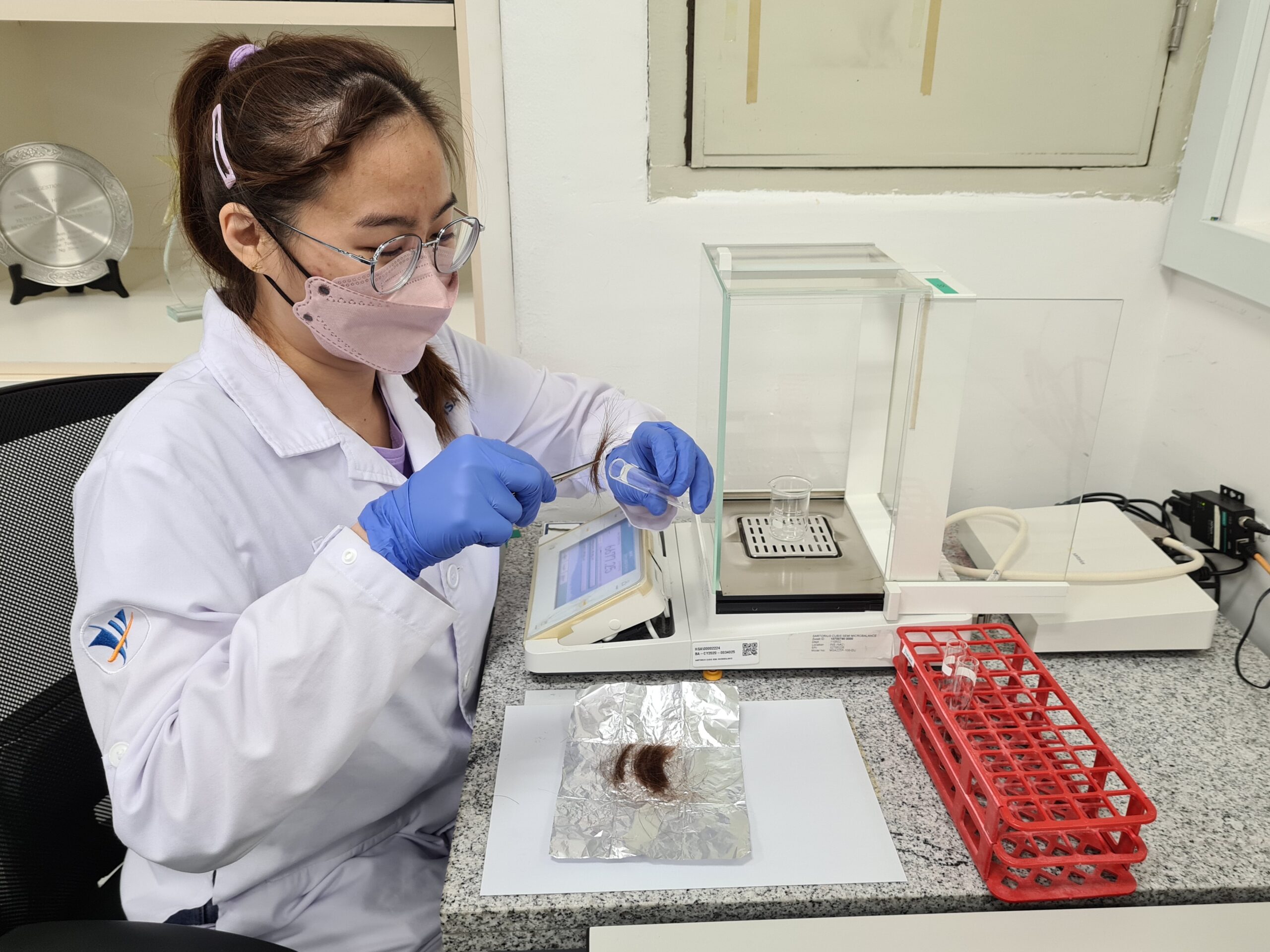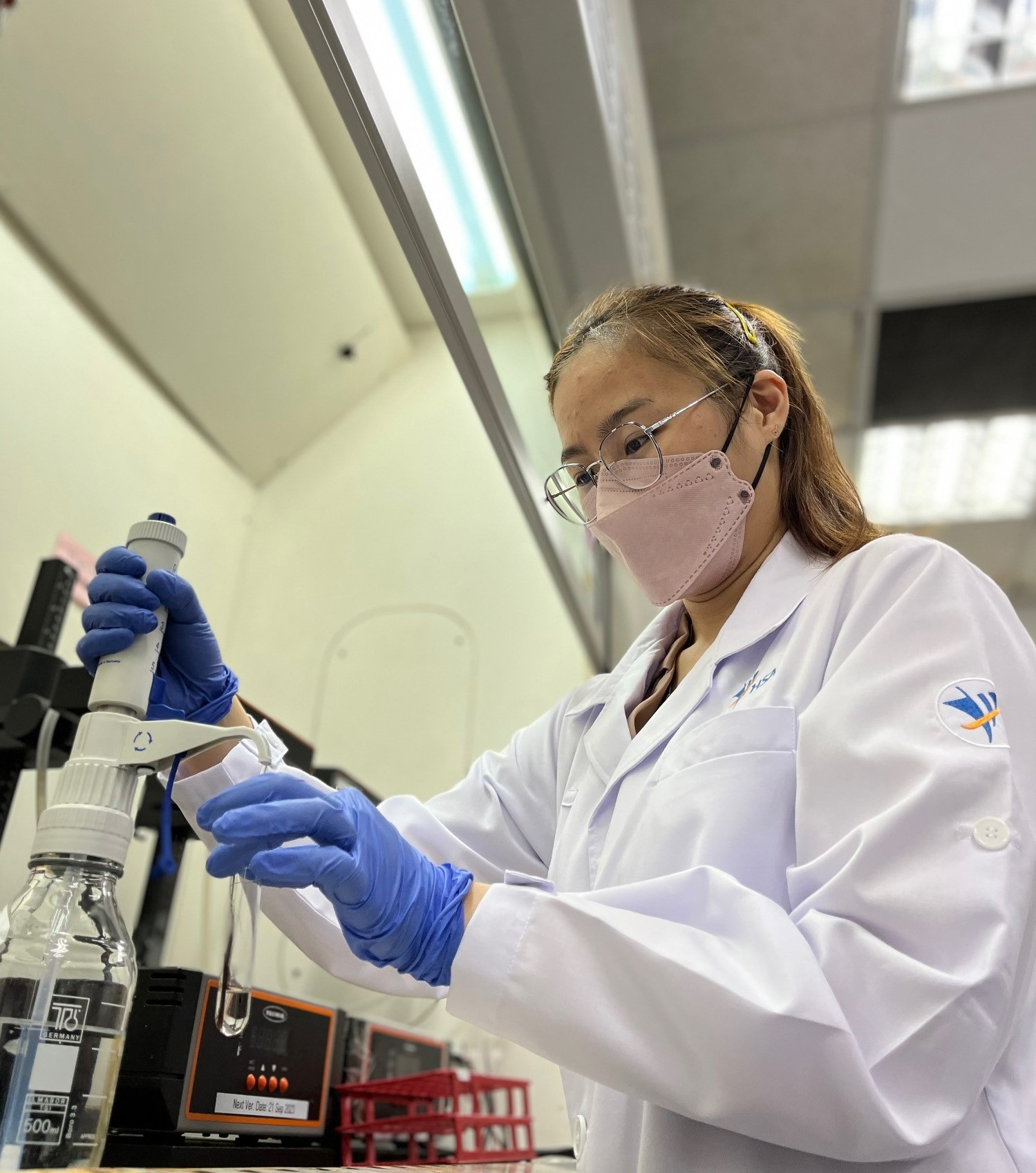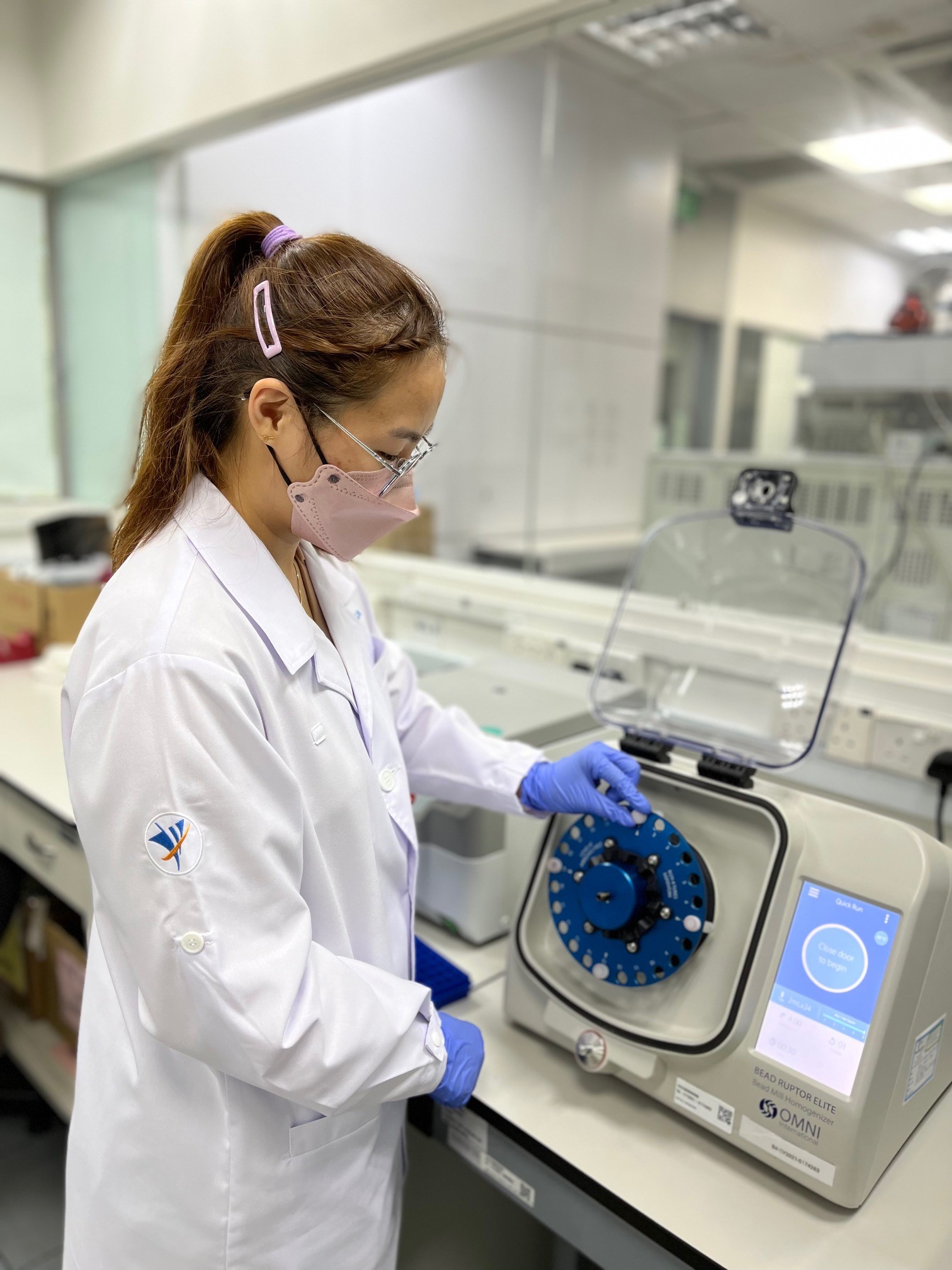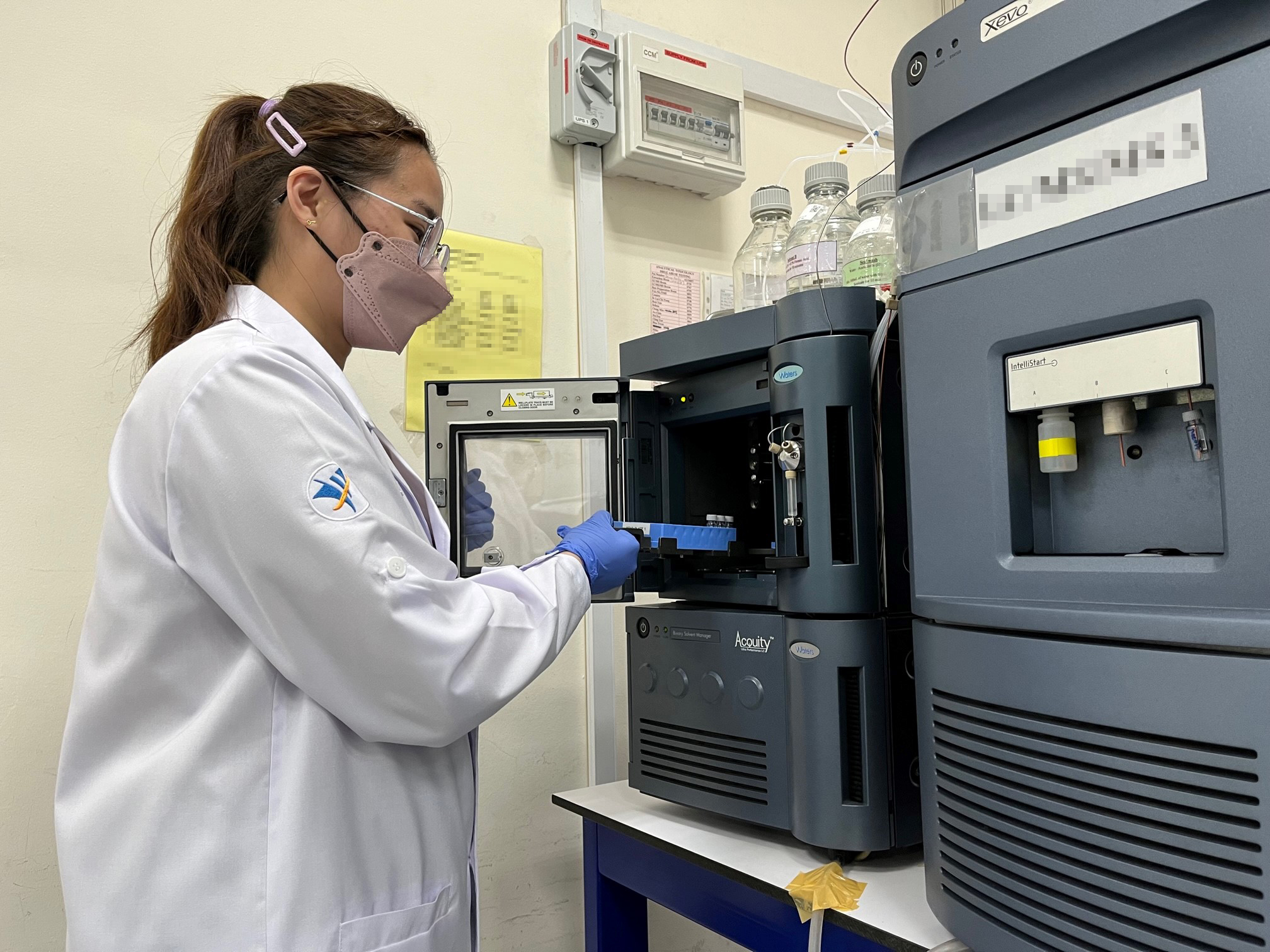Uncovering the science behind forensic toxicology hair analysis
May 22, 2023

Strands of hair can provide a lot of information about us and hair testing can shed insights into our health and habits.
This was one of the unique takeaways for Stephanie TOH from her internship at the Health Sciences Authority (HSA), Analytical Toxicology Division, Analytical Toxicology Laboratory - Drug Abuse Testing.
For Stephanie, a Year 4 student who majors in Chemistry and minors in the multidisciplinary Forensic Science programme, her research project to determine an effective way of decontaminating hair samples for drug analysis enabled her to apply her knowledge from both fields of study - which she describes as “a nice alignment of my beliefs and passions.”

She cites, as a standout moment, her discovery that hair can tell the history of drug use as the detection window is longer, compared to other biological matrices such as blood and urine. Conducting hair analysis, from weighing hair samples using a semi-micro balance to instrumentation, was “an interesting and memorable experience” for her.

She had the opportunity to apply her laboratory skills by using the bead mill homogeniser to extract drugs from hair matrices during the process of pulverisation. Decontamination by washing hair samples using various solvents/solutions at different durations, she found, also improves the signal-to-noise ratio which increases the sensitivity of detecting the drug analyte, even at low levels using the analytical intrument.


On her internship experience, Stephanie says, “I picked up new chemistry knowledge.” She adds, “I have also become more independent and gained valuable soft skills such as presentation and communication skills.”
The Analytical Toxicology Laboratory at the Health Sciences Authority (HSA ) analyses biological fluids for drugs of abuse, pharmaceutical drugs, and common poisons, through the work of two units: the Clinical & Forensic Toxicology Unit and the Drug Abuse Testing Unit. With a wealth of forensic experience and knowledge, HSA forensic scientists can share firsthand experience in analytical toxicology with students.
Dr Christopher SYN, Group Director of HSA’s Applied Sciences Group says, “An internship at HSA provides students unique and mind-opening glimpses into the complex workings of forensic laboratory work in real life.”
Find out more about the Undergraduate Professional Internship Programme (UPIP) at https://www.science.nus.edu.sg/industry/upip-for-employers/

